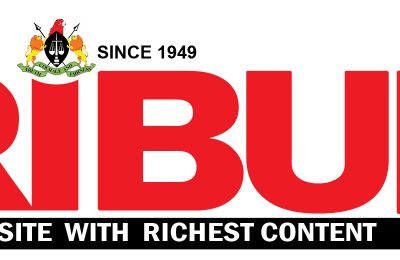STAKEHOLDERS across the country’s aviation sector have raised the alarm over the urgent need for the government to save the sector from its present precarious state.
During a television programme recently, the key players argued that it will be extremely tough for domestic carriers to compete favourably with their foreign counterparts on the international routes for various reasons particularly based on the point-to-point.
Chief Executive Officer of Belujane Consult, Mr Chris Aligbe, the Secretary General of Aviation Round Table (ART), Mr Olumide Ohunayo and another aviation expert, Mr Toni Ukachukwu, while speaking on the programme, described as archaic the method of operating as a standalone airline.

The experts jointly agreed that airlines are presently in intensive care units and require urgent assistance to be able to operate in a friendlier environment.
On the stance of the domestic airlines on the foreign scene, the CEO of Belujane Consult, insisted that no airline will survive under the present point-to-point.
While commending the efforts of the Minister of Aviation and Aerospace Development, Festus Keyamo in taking the Cape Town Convention a notch higher with the CTC practice direction that was enforced on September 12, Aligbe cited how the development has brought back dry-lease arrangements for Nigerian carriers as opposed to wet-lease arrangements that are very costly to the operators.
He said: “In fairness to airline operators, they face many economic challenges – access to foreign exchange, rising cost of fuel and operations. Everything is stacked against them. From 2017, the issue has been that of wet-lease.

“In aviation, we call wet lease the ACMI (Aircraft Maintenance and Insurance). You don’t use your crew, you don’t pay the insurance and maintenance. Everything they give to you is quite high. What they pay pilots out there is far higher than what is paid to the technical crew and what you even pay for the aircraft. You have no time to manage it.
“What you do is to manage the operations and that is why it is heartwarming that the government, the Vice-President, the aviation minister, the finance minister and the Chief Judge of the FCT signed the CT Practice Direction.
“It was not the CTC that was signed because people make the mistake of saying CTC. CTC was signed and domesticated in 2007. It was during the tenure of Dr Harold Demuren as Director-General of NCAA and by March 2007, that document was deposited.
“After 2007, two Nigerian airlines, First Nation and Topbrass violated the CTC. Immediately they violated the CTC, Nigeria became blacklisted and once we were blacklisted, airlines could no longer get aircraft on dry lease and that was when the challenge came in. It is a major effort and success that we can return Nigeria to what it was before. We are back to dry lease.”
In the same vein, Toni Ukachukwu attributed the problems of the carriers to what he called a combination of lack of forex, unfavourable environment and regulatory issues, even as he acknowledged that there are concerted efforts by the minister to begin to unlock these areas to ensure that there are favourable conditions for the airlines.
Ukachukwu described wet lease as one of the things that is crippling airlines in Nigeria because lease rental is done for the country’s carriers at a high premium following the blacklist of Nigeria which was seen as high risk.
He said: “The aviation industry is highly dollarised. Everything they do in the aviation industry is dollar and if we have FX issues, it directly impacts the operators and the aviation industry. Another is the jet fuel which accounts for 60 percent of the operating costs.
“These two factors will give rise to the high cost of tickets because the operators want to stay in business but not only stay in business but they must make sure that their operation is safe and they don’t operate in any shape or form. It is a very tough time for the airlines. The airlines are in intensive care units because they need the full support of a favourable environment.”






